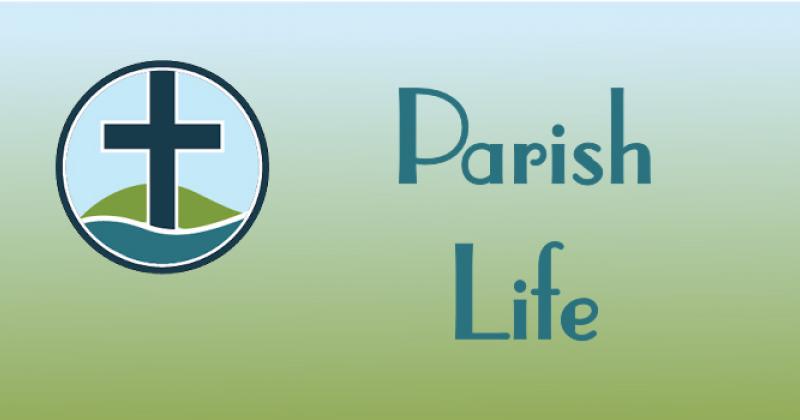On July 20, the Vatican issued a new document calling for a renewal of parish life, placing a heavy emphasis on the centrality of evangelization.
“The pastoral conversion of the parish community in the service of the evangelizing mission of the Church” is a 24-page document, divided into 11 chapters, released on July 20 by the Congregation for Clergy.
The central message of the document is a call to drop “outdated” conceptions of parish life, to avoid the repetition of tired routines, and to encourage an evangelical zeal “capable of transforming everything, so that the Church’s customs, ways of doing things, times and schedules, language and structures can be suitably channeled for the evangelization of today’s world rather than for her self-preservation.”
However, for many Catholics living in dioceses whose bishops are planning to close parishes, the most important significance of the new Vatican document might be the stricter standards it sets for suppressing parishes.
In issuing the document—which was approved by Pope Francis on June 29—the Congregation for Clergy notes that the Vatican is not issuing new norms, but offering pastoral guidance for bishops. In particular, the Congregation explains that the guidance is intended to help bishops through the difficult task of restructuring dioceses.
The focus on reorganizing (or downsizing) dioceses is apparent from the beginning of the document. The first paragraph reads:
The ecclesiological reflection of the Second Vatican Council, together with the considerable social and cultural changes of recent decades, has resulted in various Particular Churches having to reorganize the manner in which the pastoral care of Parish communities are assigned.
Although the document stresses evangelization, this opening paragraph does not address the main reason why dioceses are restructuring: the dramatic decline in the number of active church-goers in many traditionally Catholic societies.
The document says very little about the most obvious defining characteristic of parish life: the celebration of Sunday Mass. “The celebration of the Eucharistic mystery is “the source and summit of the whole Christian life,” and accordingly, the essential moment for building up the parish community,” the Vatican proclaims. But the document does not offer any further reflection on how the liturgy might shape and define the parish community.
The Vatican notes that the traditional form of the parish, based on a geographical territory, can no longer be considered the universal norm. Because in our era “increased mobility and the digital culture have expanded the confines of existence,” the document observed, “the territorial affiliation is increasingly less evident.”
In making this observation the Congregation for Clergy recognizes the reality that many Catholics are now traveling across territorial boundaries to find a parish that will serve their spiritual needs. But the demise of the territorial parish creates another pastoral problem. When the parish is defined by geographical bounds, the pastor is responsible for the lapsed Catholics, the home-bound Catholics, and others within his territory who need pastoral care. When the territorial boundaries are lifted, it is no longer clear who—if anyone—will minister to those people.
However the whole of the Vatican document leaves no doubt that evangelization is the primary purpose of the parish. Toward that end, bishops and pastors are encouraged to enlist the services of lay people within the parish communities. Msgr. Andrea Ripa, the undersecretary of the Congregation for the Clergy, said that the goal is to “foster a greater co-responsibility and collaboration among all the baptized” in the cause of spreading the Gospel.
However, the document also warns against the “clericalization of pastoral activity.” The Vatican insists that the missionary work of the Church is not exclusively the duty of the clergy, and lay people should be actively involved in evangelization. Still the different roles of clergy and laity should be preserved. The document stipulates that bishops may, in particular times of need, authorize lay people to conduct liturgical services such as funerals, weddings, and baptisms. But lay people are never allowed to deliver homilies at Mass.
The Congregation for Clergy strongly encourages bishops to seek the guidance from parish pastoral councils in restructuring parishes. Although parish councils are not required by canon law, the document notes, “they may ordinarily be considered as highly recommended, as Pope Francis recalled, “How necessary pastoral councils are! A bishop cannot guide a diocese without pastoral councils. A parish priest cannot guide without pastoral councils.”
Since the document is intended to guide bishops in restructuring their dioceses, it is particularly noteworthy that the Vatican lays down standards for the suppression of parishes. The Congregation tells bishops that they cannot shut down a parish without providing a clear reason for their decision, and the reason cannot be a vague and general one such as “the good of souls.”
Moreover, the document stipulates that a bishop should not close down a parish because of problems that might be remedied—specifically mentioning a shortage of funding. The document reads:
Moreover, the suppression of Parishes by extinctive union is legitimate for causes directly related to a specific Parish. Some causes are not sufficient, such as, for example, the scarcity of diocesan clergy, the general financial situation of a Diocese, or other conditions within the community that are presumably reversible and of brief duration.
